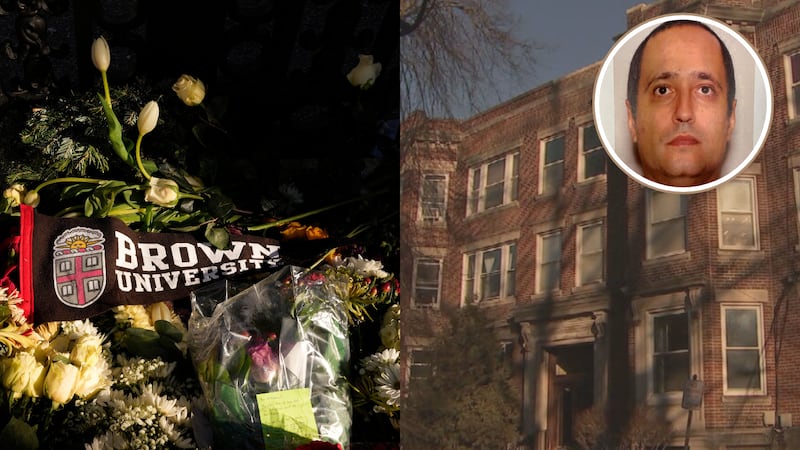BOSTON — Almost overnight, it seemed, the Arnold Arboretum was awash in the soft pastels that signify spring — as cherry trees, magnolias and forsythia burst into bloom.
But the only way a woman named Joan could enjoy the scenery Tuesday was by donning a mask, hat and sunglasses. Her seasonal allergy symptoms are that bad.
“They start up in March,” she said. “Sneezing, itchy nose, itchy eyes, itchy ears... everything itchy.”
Joan is one of a growing number of Americans experiencing — some for the first time — seasonal allergy symptoms. And a big reason for that increase is climate change, said Mary Johnson, MD, PhD, a research scientist at Harvard’s Chan School of Public Health.
“There is a rise in allergic disease in general,” Johnson said. “About 1 in 3 adults have some type of allergy and one in four children.”
Johnson said the length of allergy season has expanded by about three weeks in the last fifty years. But that’s not the only thing contributing to the increase in allergy sufferers.
“We’re exposed longer, but we’re also exposed to more pollen,” she said. “And the pollen itself is more allergenic.”
That is, the pollen is more powerful. That can be traced to rising carbon dioxide levels and higher temperatures.
“Often times, you see pollen levels fluctuate even within a week,” said Boston 25 Meteorologist Shiri Spear. “And when you get the rain it helps clean out the air.”
But, Spear said, not always.
“Sometimes really heavy rain can break apart the pollen particles,” she said. “And it can be a little worse if it’s extremely heavy rain.”
Johnson said such heavy rainfalls during pollen season can cause something known as ‘thunderstorm asthma.’
“Allergies are not necessarily something you’re born with,” Spear said. “It’s something that can develop. So in a strong season, chances are you’re going to get some ‘newbies’ out there that are getting their pollen symptoms for the first time.”
Marina Schiering is not a “newbie” when it comes to seasonal allergies.
“Before it even snowed, ironically, I was starting to get sick for a week, and then it subsided. But now they’re starting again,” she said. “So it’s been back and forth.”
Like many allergy sufferers, Schiering relies on antihistamines to get through the season — environmentally, she doesn’t see things getting any better when it comes to pollen.
“I think climate change is why it was really intense the last few years,” she said. “I think it’s gotten worse because of how drastic the change in the weather is.”
Download the FREE Boston 25 News app for breaking news alerts.
Follow Boston 25 News on Facebook and Twitter. | Watch Boston 25 News NOW
©2025 Cox Media Group





